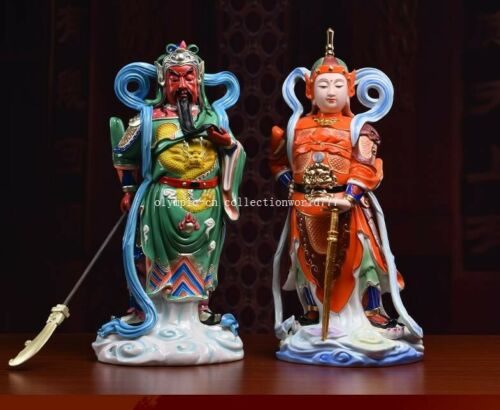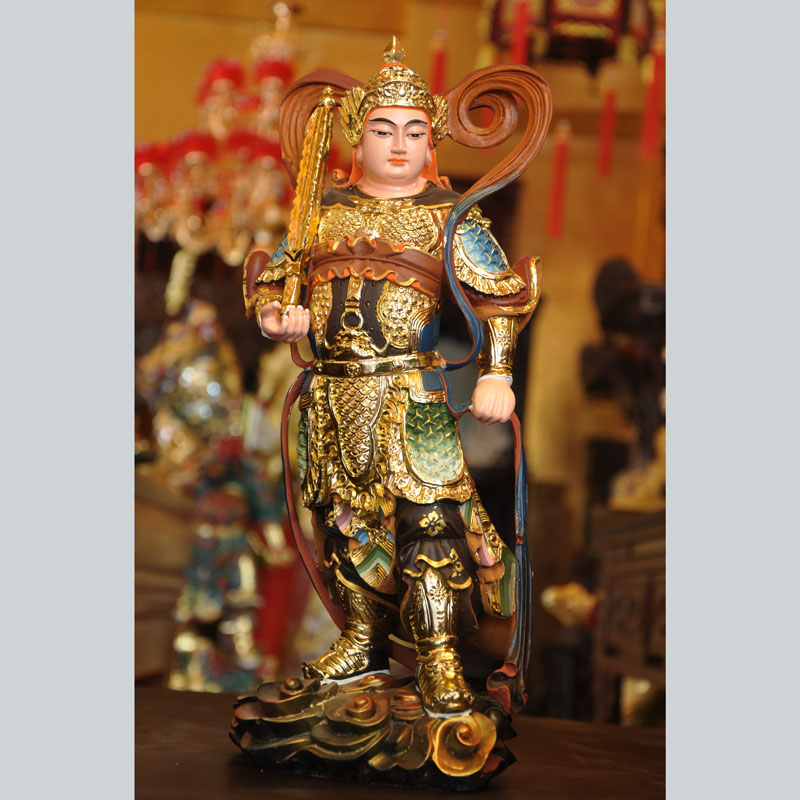
Wei Tuo Bodhisattva

Wei Tuo Bodhisattva (smaller status on the far left of the Buddhas) is renowned as one of the eight divine warriors. Wei Tuo wears his armor as an inspiring display of a majestic general. Before entering into Nirvana, the Buddha instructed the general to remain in this world as a protector of the Dharma. After the Buddha’s passing, his remains were stolen by demons. Wei Tuo Bodhisattva fought off the demons and was able to claim back the relics of the Buddha. He faithfully guarded the properties and treasures of the Dharma. Hence, Wei Tuo Bodhisattva became the devout guardian of Buddhist monasteries.
Skanda (Chinese:塞建陀, 室建陀), also known as Wei Tuo (Chinese: 韋馱) and Idaten (Japanese: 韋駄天) is a Mahayana bodhisattva regarded as a devoted guardian of Buddhist monasteries who protects the teachings of Buddhism.
Qie Lan Bodhisattva

Qie Lan Bodhisattva (smaller status on the far right of the Buddhas), wholived as a great warrior during the era of the Three Kingdoms (220-280CE). He was known as Guan Yunchang, who has selfless loyalty and sense of justice. During the Sui Dynasty (581-618CE), Master Zhiyi, founder of Tiantai Buddhism (one of important school of Buddhism), was going to build a new monastery on Mt. Yuquan. Unfortunately, the land was not leveled enough to build. One day, while the Venerable Master was in meditative concentration, Guan Yunchang manifested and promised to make the site suitable for building. According to legend, the leveling of the land was completed in one night. Under the guidance of Master Zhiyi, he took the vows of the Five Precepts and became known as Qie Lan Bodhisattva, a devout guardian of Buddhist monasteries.
Known historically as General Guan-Yu.
Guan Yu, courtesy name Yunchang, was a Chinese military general serving under the warlord Liu Bei during the late Eastern Han dynasty of China.
Guan Gong, also known as Guan Yu or Guan Yun Chang (160 – 219) was a general who lived close to two thousand years ago in China.
In later centuries, Guan Yu became a Chinese deity and was given the name Guan Gong, meaning “Lord Guan”.